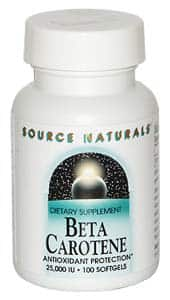- Science & Research
- Science News
- Newsletter
- 2011
- November 1

Newsletter
Newsletter
Aspirin Use Cuts Hereditary Cancer Risk In Half
Aspirin use cuts hereditary cancer risk in half
Tuesday, November 1, 2011. A study reported online on October 28, 2011 in The Lancet found that using aspirin on a regular basis reduces the risk of developing hereditary cancers by 50 percent among those with an inherited disorder known as Lynch syndrome. Lynch syndrome is caused by defects in genes responsible for detecting and repairing damaged DNA, which significantly increases the risk of cancer (primarily of the colon or uterus) in those affected by the disorder. Approximately 10 percent of colon and uterine cancers are believed to be the result of hereditary factors. Professor Patrick Morrison of Queen's University in Belfast, Northern Ireland and his colleagues analyzed data from nearly a thousand men and women with Lynch syndrome for the current study. In up to more than a decade of follow-up, approximately 15 percent of the participants who reported regular aspirin use developed cancer, compared to 30 percent of those who did not regularly use the drug. Because both groups developed the same number of colon polyps, which are precursors of colon cancer, the researchers suggest that aspirin could be destroying precancerous cells. "The results of this study, which has been ongoing for over a decade, prove that the regular intake of aspirin over a prolonged period halves the risk of developing hereditary cancers," stated Dr Morrison. "The effects of aspirin in the first five years of the study were not clear but in those who took aspirin for between five and ten years the results were very clear." "This is a huge breakthrough in terms of cancer prevention," he noted. "For those who have a history of hereditary cancers in their family, like bowel and womb cancers, this will be welcome news. Not only does it show we can reduce cancer rates and ultimately deaths, it opens up other avenues for further cancer prevention research. We aim now to go forward with another trial to assess the most effective dosage of aspirin for hereditary cancer prevention and to look at the use of aspirin in the general population as a way of reducing the risk of bowel cancer." "For anyone considering taking aspirin I would recommend discussing this with your GP first as aspirin is known to bring with it a risk of stomach complaints, including ulcers," he added. | ||||||||||||||||
 | ||||||||||||||||
| ||||||||||||||||
| ||||||||||||||||
 | ||||||||||||||||
| ||||||||||||||||
| ||||||||||||||||
The latest news on aging, nutrition, and vitamins
Lab
Testing
How Life Extension lab testing works








